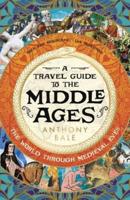Publisher's Synopsis
Charlotte Elizabeth Tonna(1790-1846) is remembered for her religious tracts and her commentaries on Industrial Britain, but her writings on Ireland of the 1820s to the 1840s have largely been neglected. Her Irish reflections cover a range of topics from agrarian violence, landlordism, Daniel O' Connell, Catholic Emancipation, tithes, restrictions on the Church of Ireland in the 1830s, to national schools, the Irish Poor Law, Father Matthew, Repeal, the Orange Order, the Irish language, and, of course, the necessity of converting Irish Catholics. Her writing had several purposes, to support herself, to convey her religious ideas, to enlighten English readers about a country she had become fond of, and to gain their financial support for the evangelical cause. A book about Charlotte Elizabeth would serve a number of purposes. It could be construed as a biography, a history of pre-Famine Ireland, and an examination of the Second Reformation. It would allow for analysis of many of the pertinent issues such as the passing of Catholic Emancipation and its consequences, the introduction of the national schools, the eroding of the power of the Church of Ireland, agrarian violence, the Tithe War and the various reactions to Repeal. Finally, such a book is an addition to Irish History, religious history and women's history by placing the writings of Charlotte Elizabeth in the context of the history and historiography of the period.






